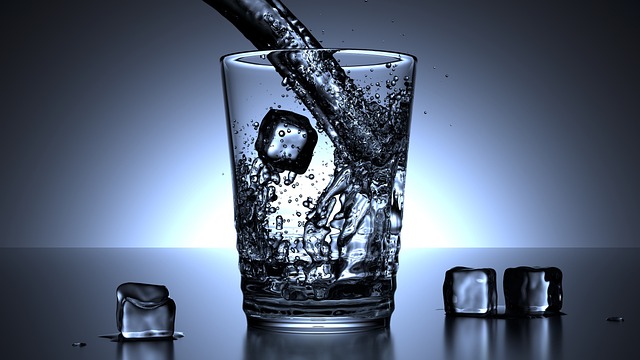Have you ever walked into your kitchen or bathroom, only to be greeted by mysterious white spots on your fixtures, despite having a water softener installed? If you’re a Hudson Valley homeowner experiencing this frustrating issue, you’re not alone. With local water hardness levels averaging 10-12 grains per gallon in areas like Fishkill, even homes with water softeners can experience these perplexing deposits.
In this comprehensive guide, we’ll explore why water softeners sometimes leave white spots, how to identify the root cause of the problem, and most importantly, how to fix it. Whether you’re dealing with spotty dishes, cloudy glassware, or scale buildup on your faucets, we’ll provide you with practical solutions and expert insights to help restore your water softener’s effectiveness.
Understanding Water Softener White Spots
White spots that appear despite having a water softener are distinctly different from regular hard water stains. These deposits often appear as chalky, powdery residue that’s easier to wipe away than traditional hard water scale. In Fishkill and surrounding Hudson Valley communities, where municipal water reports show varying levels of mineral content, these spots typically manifest on glassware, shower doors, faucets, and other surfaces that regularly come into contact with treated water.
Common Causes of Water Softener White Spots
Before diving into specific causes, it’s important to understand that white spots from a water softener often indicate that something in your system needs attention. Here are the primary culprits:
- Salt Bridge Formation – A hard crust of salt that creates an empty space between the water and salt, preventing proper regeneration
- Resin Bed Issues – Damaged or clogged resin beads that can’t effectively trap hard water minerals
- Incorrect Settings – System not properly programmed for local water hardness levels
- Bypass Problems – Water softener accidentally set to bypass mode
- High Mineral Content – Local water conditions exceeding the system’s capacity (particularly relevant given Fishkill’s documented chloride levels of 188.7 mg/L)
- Regeneration Timing – Improper regeneration cycles failing to remove accumulated minerals
How to Diagnose the Problem
A systematic approach to diagnosis can help pinpoint the exact cause of your water softener white spots. Let’s examine each potential issue and its telltale signs:
Salt Tank Inspection
Check your salt tank’s condition monthly. Look for salt bridges, mushing, or low salt levels. The salt should be at least one-third full and free from crusting or tunneling.
Water Testing
Test your treated water’s hardness using a home testing kit. For Fishkill residents, comparing results to the municipal baseline of 10-12 grains per gallon can indicate whether your system is functioning properly.
System Settings Review
Verify your softener’s settings match your household’s needs and local water conditions. Many Hudson Valley homes require customized settings due to regional water characteristics documented in municipal reports.
Performance Monitoring
Track changes in soap lathering, water pressure, and spot formation. A properly functioning water softener should provide consistently soft water throughout your home, with minimal spotting on surfaces and fixtures.
Solutions for Water Softener White Spots
When addressing water softener white spots, homeowners have several options available, ranging from simple DIY fixes to professional interventions. Understanding which solution best fits your situation can save both time and money while ensuring optimal water quality for your Hudson Valley home.
DIY Solutions
Start by checking and maintaining proper salt levels in your brine tank. For Fishkill residents dealing with the area’s documented mineral content, maintaining salt levels between 1/3 and 2/3 full is crucial for proper system function. Clean the brine tank annually, removing any salt bridges or mushing that may have formed.
Professional Maintenance
Consider professional servicing if DIY efforts don’t resolve the issue. A qualified technician can perform a comprehensive system inspection, clean the resin bed, and adjust settings to match local water conditions. Given Fishkill’s specific water chemistry, professional calibration can significantly improve system performance.
Prevention Tips for Hudson Valley Homeowners
Preventing water softener white spots requires a proactive approach tailored to our region’s unique water characteristics. Here’s what you need to know:
- Use high-quality water softener salt specifically designed for residential systems
- Monitor salt levels monthly and maintain proper fill levels
- Schedule annual maintenance checks with a qualified professional
- Test your water hardness quarterly to ensure system effectiveness
- Clean fixtures and appliances regularly to prevent mineral buildup
- Consider installing a pre-filter system to address Fishkill’s specific water challenges
Important Considerations for Professional Service
Professional water treatment service becomes necessary when your system shows persistent issues despite basic maintenance efforts. The complexity of modern water softeners, combined with the Hudson Valley’s unique water chemistry, often requires specialized expertise for optimal performance.
Regular professional maintenance helps protect your investment while ensuring your home receives consistently treated water. A qualified technician can address issues before they lead to system failure, saving you money and preventing inconvenience in the long run.
Don’t Let Hard Water Take Over Your Home – Act Now!
Is your water softener failing to deliver the clean, spot-free results you expect? Don’t wait for white spots to damage your fixtures and appliances. AquaSoft Systems has been serving Hudson Valley homeowners for years, providing expert solutions tailored to our region’s specific water challenges.
Our experienced technicians understand Fishkill’s unique water composition and can optimize your system for peak performance. Contact us today for a free consultation and take the first step toward spotless, perfectly softened water throughout your home. Call (845) 896-2415 to schedule your appointment.
